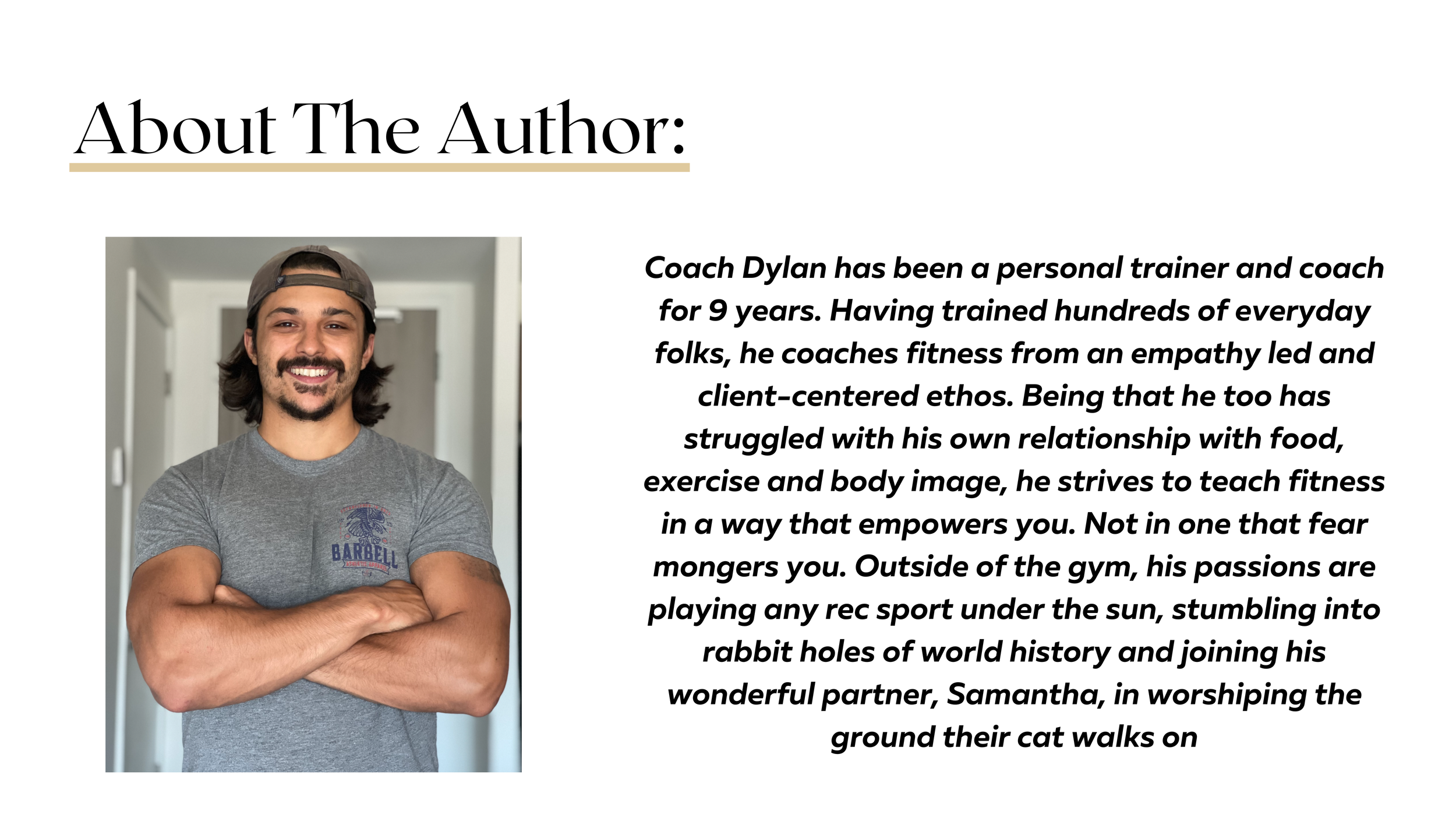Vegan Diets Are Fine to Support Muscle & Strength Goals
Some additional barriers may be met, but this diet can still support your gains
7 min read
By: Dylan Dacosta
Sparknotes:
A new study showed similar effects for bench press and leg press gains when folks ate a vegan or omnivorous diet.
Other recent data has shown similar effects for strength and muscle growth with both diets as long as protein intake is high (around 1.6 grams per kg of body weight per day.)
While vegan diets may pose additional challenges in getting enough protein compared to omnivorous diets, you don’t need to trade in your gains to adopt a plant-based diet.
It’s a common belief that a vegan diet will sabotage your gains in the gym. Especially gains of strength and muscle variety.
Even as more plant-based bodybuilders/athletes have become visible, this fear persists. This made me want to do a little deep dive into the topic and hopefully clear up any misconceptions.
A new study by Isenmann et al. (1) recently assessed the difference in strength outcomes in a 16-week trial while folks ate an omnivorous or plant-based diet.
All subjects had at least six months of training experience as well. So they surely weren’t advanced, but this also meant they weren’t completely untrained.
After a baseline first two weeks, weeks 1-8 had all subjects on an omnivorous diet. Then they switched to a vegan diet for weeks 9–16.
Food was tracked throughout the whole intervention, and all training habits were managed to remain constant.
Results
In terms of results, there wasn’t much to see. Neither group increased their bench press or leg press 1RM over the trial. In other words, neither diet elicited a superior outcome for strength on the leg press or bench press.
As you can see, some boring outcomes were observed. The only other change was that body weight dropped slightly during the vegan diet phase. The drop was ~1 kg. In my experience, that’s pretty typical when someone switches to a new diet and doesn’t quite know how to navigate it yet.
When I tried a vegan diet around seven years ago, I lost weight quickly as I didn’t know how to configure my diet yet. However, once I learned the tricks of the trade, my weight eventually crept back up.
Another interesting finding was that the protein intake did drop significantly during the vegan diet. It went from 1.32 grams per kg of body weight during the omnivorous diet to 1.11 grams per kg of body weight per day during the vegan diet.
Considering the evidence suggests consuming ~1.6 grams of protein per kg of body weight per day (2), both diets weren’t hitting that optimal target for building muscle, but the vegan group was even farther.
This also isn’t surprising. It is generally harder to hit high protein targets on a vegan diet, but definitely not impossible. This diet was new to these folks, so this finding isn’t shocking.
Is One Diet Superior For Gains?
Questions like this are tough to answer and even more challenging to respond to with definitiveness.
What we can do, is look at some other data to see if we can get a more precise answer.
A study by Hevia-Larraín et al. (3) examined strength and hypertrophy outcomes on 38 untrained young men over a 12-week trial.
Half were vegans; half were omnivores. They all trained twice weekly and ate 1.6 grams of protein per kg of body weight daily.
The outcomes were positive for both groups, with no significant difference between either group for all variables.
Another study on older adults by Monteyne et el. (4) sought to see if muscle protein synthesis rates differed between high-protein (1.8g of protein per kg of BW per day) vegan and omnivorous diets. The vegan diets relied heavily on mycoprotein which has an excellent amino acid profile for supporting muscle growth.
One leg of each participant in each group did the exercise protocol on the leg extension for three days. The other leg served as a control for that person.
Both groups saw an increase in muscle protein synthesis of 12–13% on the trained leg, with no significant difference between the groups.
Lastly, a meta-analysis by Thiam Lim et al. (5) did look at the difference in lean mass gains in trials that compared animal-based protein supplementation with plant-based protein supplementation.
No strength differences were observed, but some very mild differences were seen in favour of animal-based protein supplementation.
Specifically, for adults under 50, there was an effect favouring animal-based protein intake by ~0.4 kg of lean mass gain. The animal-based supplementation led to a 0.5% advantage in lean mass gains as well.
It is worth noting these trials didn’t have subjects on vegan diets. They just had them use vegan protein supplements. Most common of which was soy protein supplements.
All in all, the data we have seems to suggest pretty similar effects from either diet, as long as protein is equated. The main caveat is that getting optimal protein intake tends to be more challenging on a vegan diet.
Applications & Considerations
To answer the previous question, my best attempt is to say that either should be fine as long as energy intake and protein are the same.
If you can make that work on a vegan diet, I don’t see a great argument that you’re making a sacrifice in terms of getting stronger and building muscle.
It’s just likely to be more challenging to do this on a vegan diet. Partially because there are fewer high protein-dense foods in a vegan diet when compared to an omnivorous one.
Most of the high protein-dense foods tend to be animal-based. This makes it more challenging but still possible. When I was vegan, I leaned on protein powders and soy products but could still hit similar macros to when I was not vegan.
Another obstacle is that while our food environment and social systems (in the West) are far more accommodating to plant-based options now, it’s still a landscape shaped by omnivorous dietary patterns as the norm. This will add more friction.
There's less availability for folks on a plant-based diet, and once again, that simply means you’ll need to plan a little more.
If you accept this and plan accordingly, I’m confident you’ll be able to achieve your fitness goals while on a plant-based diet. Assuming that’s something you want to do.
This is also not an attempt to recruit you to adopt a plant-based diet. I, myself, am not vegan. I simply wanted to clear up any confusion and help you make a more informed decision about your dietary choices.
With the rise of carnivore diets (seemingly as a reactionary response to veganism,) a lot of nutrition misinformation is out there, which is what I wanted to address.
In short, as long as you can get adequate protein intake and total calories, a plant-based diet should be just fine for supporting your goals in the gym. Of course, some additional planning will be needed, but beyond that, it’s nothing to worry about.
Cheers,
Coach Dylan🍻
References:
1. Change to a Plant-Based Diet Has No Effect on Strength Performance in Trained Persons in the First 8 Weeks — A 16-Week Controlled Pilot Study
https://www.ncbi.nlm.nih.gov/pmc/articles/PMC9914713/
2. A systematic review, meta-analysis and meta-regression of the effect of protein supplementation on resistance training-induced gains in muscle mass and strength in healthy adults
https://pubmed.ncbi.nlm.nih.gov/28698222/
3. High-Protein Plant-Based Diet Versus a Protein-Matched Omnivorous Diet to Support Resistance Training Adaptations: A Comparison Between Habitual Vegans and Omnivores
https://pubmed.ncbi.nlm.nih.gov/33599941/
4. A mycoprotein-based high-protein vegan diet supports equivalent daily myofibrillar protein synthesis rates compared with an isonitrogenous omnivorous diet in older adults: a randomized controlled trial
https://pubmed.ncbi.nlm.nih.gov/33172506/
5. Animal Protein versus Plant Protein in Supporting Lean Mass and Muscle Strength: A Systematic Review and Meta-Analysis of Randomized Controlled Trials
https://pubmed.ncbi.nlm.nih.gov/33670701/










